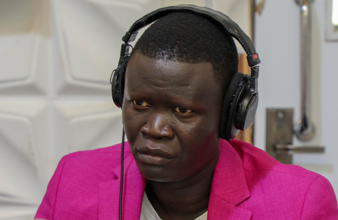South Sudan’s creative community, musicians, writers, filmmakers, designers and broadcasters, is growing in talent and ambition. Yet many creators still work without the legal framework that turns creative labor into enforceable rights, predictable income and investments.
The result: lost revenue, unlicensed use of songs and films, and weak incentives to professionalize cultural industries that could create jobs and contribute to national recovery and growth.
A modern copyright framework in South Sudan is not just about protecting songs or books. It is an essential part of enabling a creative economy that, globally, contributes significantly to GDP and employment: UNCTAD’s Creative Economy Outlook shows creative industries can account for between 0.5% and 7.3% of GDP and employ up to 12.5% of the workforce in some countries.
South Sudan already has some legacy instruments and draft proposals, but a consolidated, up-to-date law aligned with regional and international standards has not yet been fully enacted. The Intellectual Property Bill (first widely discussed around 2015) and related instruments, have been pending for years, and authorities have been working on policy drafts and consultations supported by partners. Trademark reservations were reintroduced in 2023, but the full modern IP framework still awaits parliamentary adoption.
International partners have been active: UNESCO and the EU supported work to design a copyright policy for South Sudan, and UNESCO has run consultative processes and peer exchanges on copyright and collective management for the country’s creative sector.
These efforts underline the need and the gap between policy design and law adoption.
Facts that matter:
South Sudan has consulted on a copyright policy with UNESCO/EU support, but a comprehensive, updated law aligned to international norms has not yet been enacted.
The Ministry of Justice has taken incremental steps (e.g., allowing trademark reservations in 2023) while the full Intellectual Property Bill still awaits parliamentary enactment.
Regional and global organizations, WIPO, UNCTAD and CISAC point to the economic value of copyright and the importance of collective management for creators’ earnings.
Strategies to speed up passage of the law:
1. Political advocacy targeted at key parliamentary committees.
Lawmakers respond to clear, evidence-based briefings. Coalitions of creators, civil society and business should prepare data-driven briefs (economic contribution estimates, case studies of lost income, comparative law examples) and request hearings with the Legal Affairs and Culture Committees.
2. Use evidence and numbers, show the economic case:
Showcase how creative industries can add to GDP and employment (use UNCTAD data and comparable country case studies). Concrete revenue projections, even conservative ones make the case persuasive to finance and planning ministries.
3. Leverage donor and technical support to accelerate drafting and capacity building:
International partners (UNESCO, WIPO, EU) can provide legal drafting support, training for regulators and help design systems for collective management organizations. Donor-backed timelines and conditional technical assistance can create incentives for faster action.
4. Pilot workable institutions first (e.g., a Collective Management Organization):
Demonstrating a functioning collective management society that distributes royalties creates public proof that a legal regime will deliver real benefits, increasing political appetite to legislate.
5. Public awareness campaigns timed to parliamentary calendars:
Mobilize public opinion with radio, TV and social campaigns that translate legal technicalities into everyday terms: “Your favorite song, who gets paid when it plays on the radio?” Well-timed media pressure when Parliament is considering the Bill can influence the vote.
Entertainers are not just beneficiaries, they can be drivers of reform:
Tell impact stories on air. Musicians, producers, content creators and writers should speak on radio, TV and social media about concrete losses and how copyright would change livelihoods. Personal stories move legislators.
Form or join creator coalitions. A united voice, whether an association or an informal alliance can coordinate petitions, meet MPs, and present evidence. Collective management requires organization; beginning to organize now builds the institutions the law will support.
Partner with media and civil society for campaigns. Radio stations, rights organizations and NGOs can run explainers, town halls and call-in shows to demystify copyright and build public support.
Demonstrate best practice. Creators can begin using contracts, documenting their works, and piloting royalty collection with trustworthy partners; showing readiness reduces lawmakers’ concerns about enforcement capacity.
Reach out to your Member of Parliament: If you can contact your MP, please do so. When a significant number of musicians, producers, broadcasters, and writers engage their lawmakers, it sends a powerful message to Parliament and increases the pressure to take action
Passing a copyright law is a strategic investment in South Sudan: it turns creative talent into livelihoods, attracts investment, and helps build identity around professionalized industries. International partners have laid the groundwork; now the political momentum and leadership from creators and parliamentarians are needed to finish the job. As UNESCO has noted: designing a copyright policy for cultural and creative industries is a step toward safeguarding cultural freedom and enabling sustainable incomes, the next step is turning policy into law and institutions that work for creators.
The writer, Simon Kuony Jial, is a humanitarian and development leader, policy advisor, writer, and youth empowerment advocate. He can be reached via email: kuonyjial@gmail.com
The views expressed in ‘opinion’ articles published by Radio Tamazuj are solely those of the writer. The veracity of any claims made is the responsibility of the author, not Radio Tamazuj.




